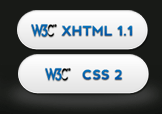Kata is kinda like watching subtitled anime…
So, let’s get it out of the way for the nth time – I’m a bit nerdy, right? Anyway, part of my nerdy habits is that I like watching anime, but I’m picky in that I only like watching it in Japanese with subtitles (mind, I extend that to all foreign film/music – I’d rather watch/listen to it in its original language with subtitles than something dubbed into my native tongue). So, Jyastin-kun and I were heading to karate last week and we were chatting about stuff, and I came up with this awesome analogy, that kata is like watching subtitled anime – if you take it all at first glance and verbatim, you only get one aspect of the whole story, but as soon as you begin to understand it and read more into it, you get a greater understanding of it.
The part of the conversation this came from was how we were talking about how knowing a smattering of written and spoken Japanese reveals all the inadequacies of a simple, literal (or localised) translation from one language to another gives. In the English language compared to Japanese, the system of honorifics does not exist to such an extent, and the gravity of different accents, levels of formalities and other specific eccentricities unique to the Japanese language makes it difficult to bring all this across in a series of subtitles. However, as soon as you start to learn some of the language and cultural norms, your viewing of the material changes – you understand the various levels of honorifics and how they establish hierarchy within the context of the story. Awkwardly-translated phrases (not awkward through any fault of the translator, but awkward through the act of transliteration) somehow make much more sense when you understand the language behind it, and in-jokes and cultural norms suddenly open your eyes to a much deeper experience of the story at hand. Then, with all this in hand, when you watch something you can take the subtitles as your guide, but you’re free to interpret the deeper or more subtle meanings behind the language or content your own way, and in turn, gain a deeper understanding into what’s happening on-screen.
Similarly, when you start learning a kata, you start by following the movements verbatim. As your knowledge of the kata and what the movements signify increase, you gain a deeper understanding of the routine actions represent. Once you have developed your base understanding and precepts behind the actions, you begin to make the kata your own, and instead of it simply be a series of pre-assigned movements, it becomes an involved exploration and an expression wholly personal to you, the individual.
I’m hoping the above is reasonably coherent… and in looking over this post, it’s not just subtitled anime that this can be applied to – movies based on books are another example (i.e. you’ve read the book, then seen the movie), exploring other literary works with an understanding of the context of its creation or expression by the author (whether it be music, film or literature), and so on. I just chose subtitled anime because it came up in discussion and proved both obscure and apt in the grand scheme of things 😀





Wow I had no idea we had such intellectual discussions!
I thought we just talked random crap for 25 minutes… guess i was wrong. HE~hen da!
Yeah, we’re totally intellectual dude 🙂